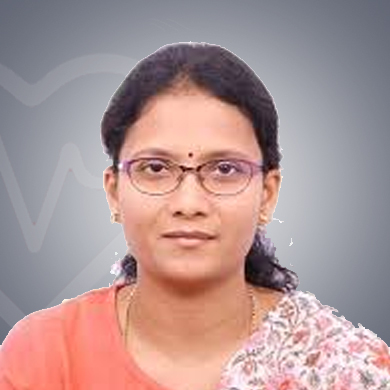
Opthalmologist
Manipal Hospital, Hebbal , Bangalore, India10 Years of experience
Speaks: English
One of the eminent ophthalmologists, Dr Mridula Pentapati treats a variety of conditions with high success rates. The conditions treated are as follows::
Some of the most common eye conditions that the ophthalmologist treats are Diabetic Retinopathy, Dry eye Syndrome, and Conjunctivitis. The doctor might prescribe some antibiotics for bacterial conjunctivitis. Antibiotics might help lessen the length of infection. For dry eyes, the doctor will do physical examinations, and treatment may include use of artificial tears and reduce tear drainage.
Eye conditions can produce the below-listed conditions However, symptoms might vary from person to person. Every condition has its symptoms.:
The above signs and symptoms suggest that you need to see an eye specialist. Having serious eye problems on time can help you restore your vision. Sometimes, non-vision eye problems may be treated to keep the eyes comfortable and the eyesight sharp. It is important to go for routine eye examinations to diagnose the condition.
You can consult Dr Mridula Pentapati from 10 am to 5 pm. The ophthalmologist works an average of 47 hours per week.
The popular procedures that Dr.Mridula Pentapati performs are listed below:
LASIK (Laser in Situ Keratomileusis) uses a laser to reshape the cornea. This procedure uses a certain laser designed to treat vision issues, improve vision, and also reduce the need for glasses and contact lenses. The laser alters the shape of your cornea.

Share Your Experience about Dr. Mridula Pentapati

An ophthalmologist is a doctor who has a specialization in eye and vision care. They are trained to perform various eye tests, diagnose and treat eye diseases, prescribe medications and also perform eye surgery. They also provide prescriptions for contact lenses and glasses. While ophthalmologists are trained to treat and diagnose all eye problems, some ophthalmologists specialize in a certain field of medical and surgical eye care. They complete 1-2 years of additional training in one of the main subspecialty areas, including Pediatrics, Oculo-Plastic Surgery, and Neurology. They also participate in scientific research on the treatment for eye diseases and vision issues.
Some of the most common test performed for the diagnosis of eye conditions are:
An opthalmologist may perform a number of different tests to evaluate your vision and diseases. Each test will evaluate some specific aspect of vision. The doctor may direct a beam of light in your eyes to look for any abnormalities in the retina. They design the treatment plan posts after evaluating the test reports.
Below are some situations when you need to see an opthalmologist:
If you notice the above-listed signs and symptoms, you are suggested to see an opthalmologist for a proper diagnosis of the condition. The opthalmologist will evaluate the test reports and will plan the treatment that is best for you.